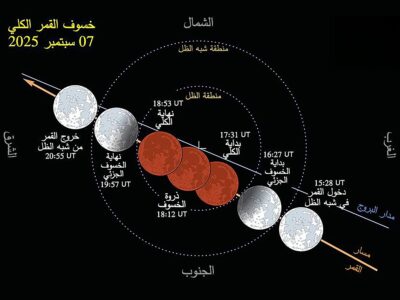In the Sudanese capital, Khartoum, a group of young men sit with primitive digging tools in their hands. They receive every visitor to offer them a service – ready-made graves to bury the dead.
The scenes of grave trade in this historical cemetery and the supply and demand that permeates it, embody the reality of the ordinary market. With the dead lying still, there is life buzzing above them. The individuals in the grave trade business depend on burial digging, requirements for preparing bodies; including shrouds, perfumes and more, as their main sources of income, according to research during the Arabian Business tour.
With the deterioration of the living situation in Sudan and the high unemployment rate among young individuals (65 percent), the majority of whom are university graduates, have found an opportunity in cemeteries to carry out this grim business. The grave trade business, unlike most other businesses, is not exposed to the risk of loss during recession or periods of economic turmoil.
Although there are no official statistics on this type of trade, Arabian Business spoke to Al-Fateh Abdullah, one of the young people who is active in digging graves in the “Hamad Al-Nil” cemetery, about the details of this profession, its secrets, and the prices of cemeteries.

He said:
- We do not set any fixed price for the grave and we often accept any amount paid to us by the relatives of the deceased.
- We consider ourselves volunteers and our work is non-profit, despite any compensation we may receive.
- Well-to-do people may pay a large sum of up to 20,000 Sudanese pounds for a single grave.
- Those whose conditions are bad and can’t afford to pay are given burials for free.
- A tombstone is sold for 10,000 Sudanese pounds and is not subject to any bargaining.
- Tombstones are expensive and made of cement, sand and other building components.
According to Al-Fateh, the volunteer grave diggers remain in the cemetery 24 hours a day to provide burials.
Tombs of Hamad al-Nil
The commercial activity in the Hamad al-Nil tombs and other cemeteries in the Sudanese capital is not limited to selling graves. Individuals also sell tea, Qurans, religious books and clean shoes and tombstones. There are also groups that perform religious chants to receive compensation from visitors. These are the primary sources of livelihood for many families.
Mirghani Abdulaziz, a Sudanese citizen, believes that despite the commercial nature of grave digging, the youth working in cemeteries are doing a great job. They are familiar with all the geographical details in the cemetery and know the empty spaces to set up a new grave, finding an empty spot is usually difficult for ordinary people due to overcrowding in cemeteries.
He told Arabian Business, “When one of my relatives died, we tried to dig a grave and found an old body, and that happened in more than once. In the end, we went and bought a ready-made grave at a low price to remunerate for the effort put into setting up a grave. Considering the amount of effort put, these volunteers should be supported with rewarding returns.”
In contrast, Al-Fadil Moussa, one of the workers in this type of service, says that their work in digging graves brings them a special reward, and that the historic Hamad al-Nil cemetery enumerates the advantages of this site for burying the dead by saying:
- Hamad al-Nil’s cemetery is a destination for all residents of the neighbourhoods of the capital, Khartoum.
- We sell at least 3 graves per day.
- The daily return may be up to 60,000 Sudanese pounds (US$105) to be shared by the grave workers.

Moussa emphasised that they are making thousands of graves, work is continuous and that the efforts are intended to help people and provide the dead with a resting place.
He also says that he chose this work over others and he feels complete satisfaction and overwhelming happiness with what he offers, in addition to that his presence in the cemeteries leaves him in a state of permanent remembrance of death and the Day of Resurrection.








